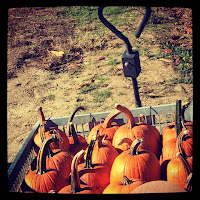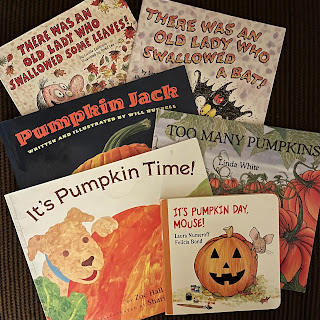The illustrations add to the perspectives in the book, and, when simply doing a picture walk through this book, you can see the story unfold. The message is deep and the seeds of hope it sows are so important to share with our upcoming generations.
Make Early Learning Fun!
Early Childhood Ideas and Information
Sunday, August 4, 2024
Book Choice: The Other Side by Jacqueline Woodson, illustrated by E.B. Lewis
The illustrations add to the perspectives in the book, and, when simply doing a picture walk through this book, you can see the story unfold. The message is deep and the seeds of hope it sows are so important to share with our upcoming generations.
Monday, October 23, 2023
Celebrate Diwali with Read-Alouds!
When children see their culture represented in books, it can promote inclusivity and self-worth. Being able to share parts of their lives at home and have others interested in the holidays they celebrate may make students feel more accepted and comfortable in the group.
When children learn about many cultures and different holidays, it helps them to appreciate the world and the people around them. Introducing your children to a variety of cultures, via the gift of reading, is one step to raising culturally sensitive humans.
Diwali is a major holiday celebrated by people of Hindu and other faiths, and is a major holiday in India, similar to Thanksgiving or Christmas in the US, according to National Geographic magazine. It is typically in late October or early November, November 12th in 2023. Here are a few titles to get started with at an early elementary, even preschool, level.
Saturday, October 21, 2023
Painting Some Pumpkins :)
When there’s (finally!) a bite of fall in the air, pumpkins start popping up everywhere! There are so many cool lessons to enjoy involving pumpkins, such as those linked here: https://makeearlylearningfun.blogspot.com/2020/10/we-are-scientists-pumpkin-exploration.html and https://makeearlylearningfun.blogspot.com/2012/10/pumpkin-fun.html
For some Art interest, there is nothing like simple process painting for the little ones. Before their hand-eye coordination is fully developed, it’s still fun to work with paints to get that squishy feeling - either with hands, brushes or even sponges or other objects.
Let them cover a paper with paint however you choose and after the page of orange painting dries, you can use thick cardboard stencils (cereal boxes?) cut in large pumpkin shapes to help them make lines and start to cut out their pumpkins!
Make sure they’re on board with cutting into their artwork - modeling the process first will help them understand. Decide how to display - hanging by some yarn, taped on the wall or window, stuck on the fridge?
Of course, kitchen sponges cut in the shape of pumpkins would be fun - your kiddos can print a whole field of pumpkins and fill in with drawn vines and leaves.
Apples, cut in half, give a nice pumpkin shape, when dipped in paint and printed. Try using apples that are not super edible to avoid food waste.
Not looking to get out the paints - or need a quicker craft? Try large orange ink pads and spongy pumpkins to get a similar effect.
Sometimes, though, you just want to paint on an actual pumpkin! We got the markers out for this one - fun was had by all!
Thursday, October 19, 2023
Pumpkin Day Feelings!
Big emotions like mad, sad, scared, surprised are represented here …. Even silly! You can use this book to make your own little flip books with some blank pumpkin shapes and have your littles fill in some emotional faces - simple lines that will help them show feelings, like the emoticons they are so used to seeing everywhere.
 Use some small mirrors to have them try to see their own faces showing these emotions. The more they become familiar with naming how they are feeling, the more insight you might get during a difficult time when they are having trouble regulating their own emotions.
Use some small mirrors to have them try to see their own faces showing these emotions. The more they become familiar with naming how they are feeling, the more insight you might get during a difficult time when they are having trouble regulating their own emotions. Saturday, March 11, 2023
Printmaking with Nature
As the weather warms up here, everyone wants to be outdoors, especially the kiddos. Looking for lessons that can be done outdoors is one way to satisfy that longing for fresh air!
Printing with the colors of spring is a delicate process but has so many benefits for your littles. Teach them to retrieve the flower parts that have fallen already, or those that are in abundance or wilting, so as not to take away what animals and insects need :) Talk about food chains in the simplest terms and about how important all of the pieces of the chain are.
It is also a great time to talk about having respect for growing things, and to give the plants a chance to survive and thrive. Children are capable of being very gentle and should understand their impact on gardens and wildflowers - respect for all nature! :)
Bring paper and rolling or pounding tools (maybe from playdoh or kitchen sets) outside. Demonstrate how to place the plant material gently between the folds of the paper and press, or pound, the color onto the paper - and then check out what you have made! The color and shape may transfer or become another shade when pressed on the paper. Very wet flowers and leaves won’t work for you, and dried leaves or plants are too brittle to transfer well.
Trial and error (or success!) is a great practice for children, as they need to learn stamina in experimenting. Watch for students who are willing to share information and partner them with those who may need some encouragement.
This can be a great team building experience, as you hopefully see empathy and excitement build for all the group to be successful. As children learn to work together, they can experience great self-image and feel good about cooperating. Encouraging these traits through play and creating is THE BEST!
And, as always, have fun!
Wednesday, July 27, 2022
Modeling Quiet Time
There are so many distractions in the current world and the kiddos are WOUND UP with electronics, constant programming, sports teams .... all of which have their place.
But ... it's hard for a kiddo to find a space to relax, unwind, and just think.
These days, grown-ups are suffering from the same "affliction," and have limited space (physical or mental) for reflection, dreaming, creating, etc.
Telling your child to have some quiet time doesn't always help them to understand what you mean by that. Like any concept, MODELING this for your children is a critical piece of teaching them to make space for their own quiet time. Take some time to show your child, by example, what quiet time would look like, sound like, feel like.- Get comfy in a chair and read an actual paper book or magazine. Recharge and take your time, focusing on something, instead of scanning.
- Take a blanket outdoors with some books and writing paper (or not) and have quiet time in the shade. Enjoy the benefits of being outdoors.
- Find a corner of the room to sit in with minimal distractions and write, diary style or free style, any thoughts you have - or doodle.
- Turn the lights down, put on some soft music and just let your thoughts wander. Regulate your breathing to lower your stress.
Let yourself enjoy some quiet time, and your child will learn that this is a great time for dreaming, relaxing … and for self-regulation. Sometimes the stress of our go-go world is too much, and having tools to decompress is important.
"Mindfulness" is a concept that has been publicized a lot in recent days. There are books, videos, audio tracks, etc. to help you on the path to mindfulness. So many folks are looking for an easier way or more time-efficient way to do things, but mindfulness (or quiet time) is not going to fit into that category. Carving out some special time to be quiet, spend time with yourself, find things that make you joyful ... this is a process.
MODEL for your children, and enjoy the side benefits of winding down and chilling out.
Have fun!
Monday, July 25, 2022
Daily Schedule for the Win!
It seems like such a little thing …. a visual schedule.
Children are used to keeping to a schedule in school, and educators have long known that posting a daily schedule (and sticking to it, mostly) can help keep students on track and alleviate questions and disagreements. At home, especially if it’s the school holidays and the days are drifting by, a schedule can help with your daily routine, too. Maybe the little transitions are turning into longer transitions, with pushback, and some tempers may be starting to flare. The b-word (BORED) may be getting
Something simple like posting a visual schedule can alleviate stress, help children make the most of their time, and ease transitions between activities. Just as in school, a posted schedule allows children to see what is coming up, how close snack or lunchtime is, and when their favorite activities are coming up. With siblings involved, it also allows for taking turns in a non-confrontational way. And, the best, the adult doesn’t have to keep tightening the reins or making decisions, and might enjoy their children more ;)Using timers has worked for us too, to give children a way to monitor how much time they have left in a time period. Even the smaller children can visualize, by using an egg timer or countdown clock, both of which you can find online.
Try this out and see if it works for you!
Have fun!

















